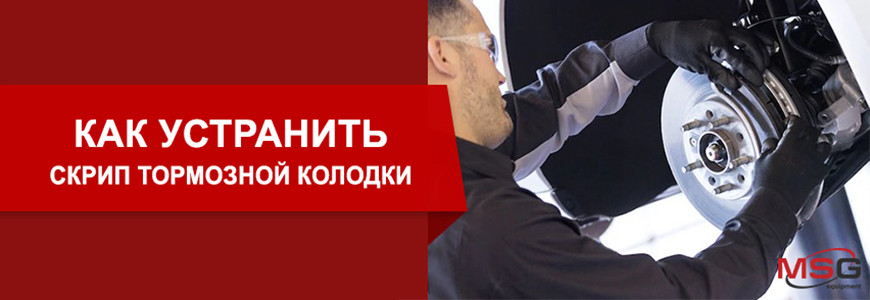Brake pad squeaking: How to fix the problem

Brake pads – elements of the car, «doomed» to work on friction. This means that their wear and subsequent replacement – are natural and inevitable. Not only that, front brake pads wear out 2-3 times faster than rear ones.
If you hear your brake pads squeaking, even if they're almost brand new, our article will help you understand the causes and fix them.
How you can reduce squeaking brake pads
So, if a new set of pads, not having had time to work, began «whistling», do not hurry to despair and look for a replacement. This unpleasant sound can arise due to a special coating, which covers the pads in the production. Try «run-in» the pads for 2-3 days, occasionally making sharp braking. In this way, the factory coating will wear off and the squeaking will disappear.
Incompatibility of pad and disc material
Note that the composition, which covers the friction zone of pads, is classified from ordinary people and, above all, from other manufacturers. After all, why would competitors want to know the formula for success? So, the more durable brake pads are, the harder they are and the more they vibrate, which means that the probability of squeaking increases. Softer pads make less noise during operation, but they'll wear out faster.
As a result of this confidentiality, the materials used to make the friction pads may not be compatible with the brake disc coating and will eventually squeak when rubbing.
Softer pads may not be compatible with the brake disc coating and will squeak when rubbing.
What can I do to keep my brake pads from squeaking?
Replacing the pads with other pads (from a different manufacturer) or lubricating them with special compounds will help to avoid squeaking. However, avoid oil-based lubricants and WD-40, as they reduce the safety of driving. Check with a sales assistant at an auto parts and supplies shop to see which product is right for you.
If you want to install non-original pads, you can prevent them from squeaking by removing metal burrs (which are almost always present) with emery cloth and treating the ends of these products with fire-resistant paint. Such manipulations will reduce the gap between the friction lining and the surface of the brake disc.
Be sure to lubricate the guides with graphite grease before installing the pads in the caliper.
If all of the above steps fail, inspect the brake discs for wear. It may be time to replace them.
Brake pad oscillation
Auto-wobble pads – another possible cause of them squeaking when the vehicle brakes. This can be caused by faults in all components of the braking system in contact with the pads, namely:
- Jamming of the brake caliper due to its bad work or unlubricated guides.
- Souring of caliper guides.
- Formation of a shoulder (protruding ridge) along the outer diameter of the brake disc due to wear.
- Destruction of brake pads, debris from which clogs the caliper, resulting in caliper jamming.
How to determine the wear of brake pads
- Braking occurs when braking the car sharply.
- Brake system behaves inadequately (increased braking distance, or the wheels are sharply blocked).
- Metal shavings are visible on the wheel rims – the result of scratching of the disc by the pad.
When to change brake pads
The thickness of the friction pads should be at least 2-3 millimetres. The wear of the pads is signalled by transverse grooves on the protective linings, which can be seen when the friction coating is rubbed off.
Brake pads are also increasingly being fitted with special wear monitoring sensors. When the friction layer of the pad wears down to a critical value, you hear a squeaking noise and the sensors send a signal to the ECU, which is reflected on the dashboard in the form of an illuminated indicator.
Now you know the causes of brake pad problems and what to do to keep them from squeaking. And if you're interested in brake caliper repair, check this out.
Brake caliper repair.








